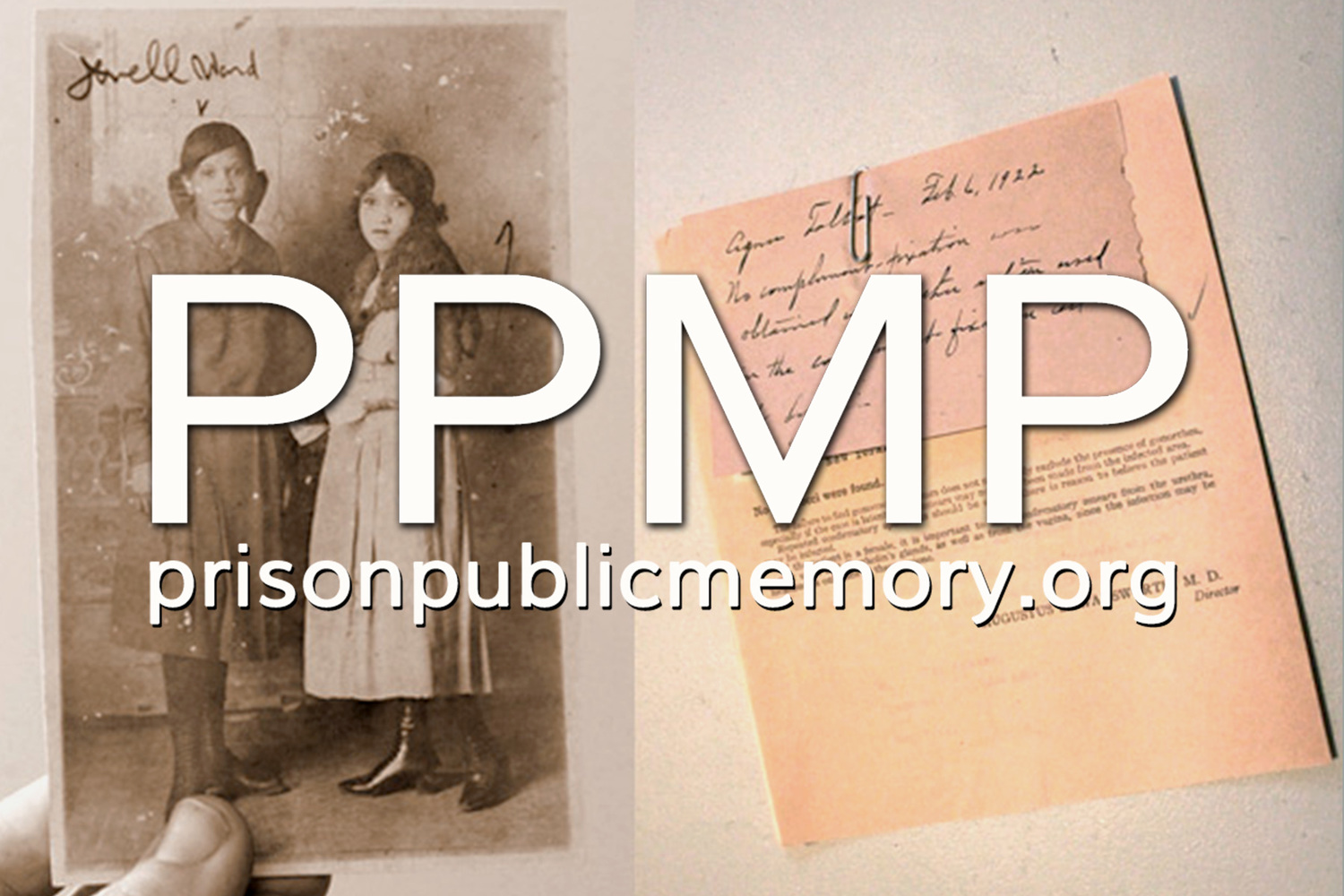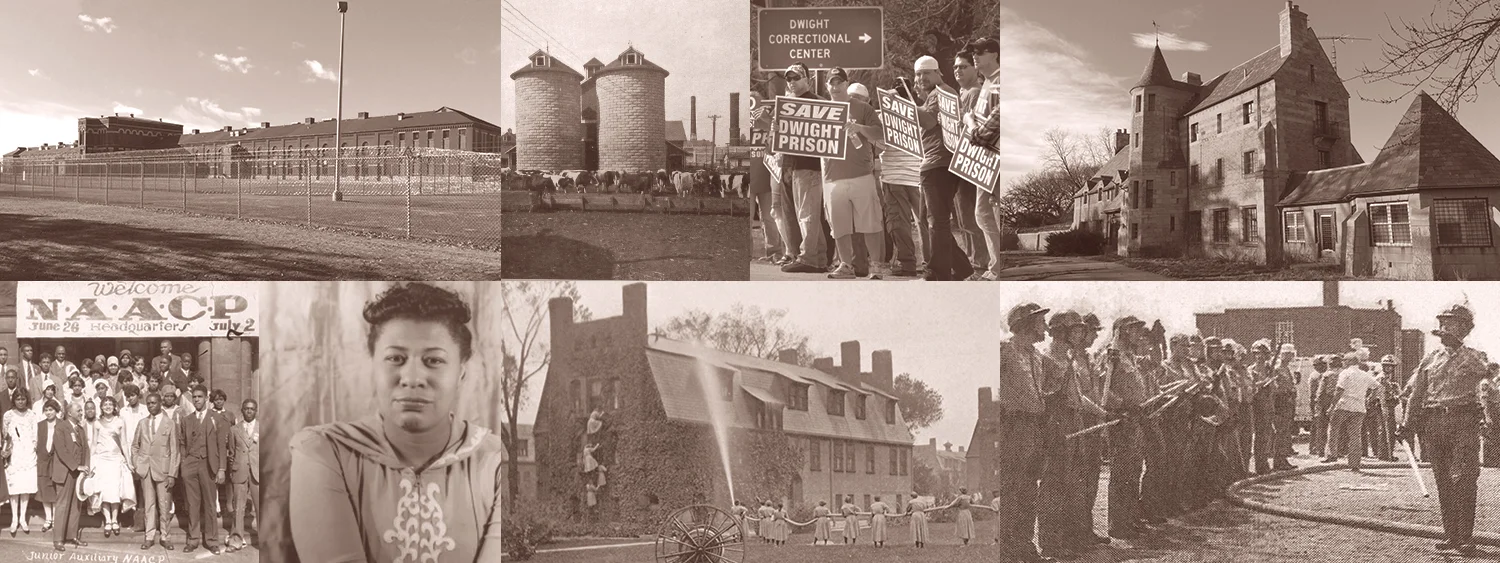Training School: Punishment or Protection?
/In November 1905, Minnie B. Wade, a parole agent for the newly established New York State Training School for Girls located in Hudson, NY, addressed participants at the Sixth Annual New York State Conference of Charities and Corrections, held in New York City.
In her talk, Wade gave a straightforward description of the Training School’s day-to-day operations and programs: "Permit me to say, by way of introduction, that I am not prepared to advance a world of theories concerning the training of wayward girls; I am just going to tell you about the work of your State Training School in Hudson."
What follows are excerpts* from the fascinating discussion that followed Wade’s presentation.
Mr. Lodge of Monroe: I want to go home with a clearer idea in my mind of the causes that make a girl a subject for admission to the Training School. If I could have it explained a little clearer; –must they actually commit some crime? I don’t believe it is clear in the minds of us just what causes would make a girl subject for admission to Hudson.
Miss Wade: It is not necessary for them to commit a real crime, and we do not really consider the girls as criminals. Many of them come to us, whose commitment reads, "in danger of becoming depraved." They are in surroundings where the person making the complaint knows they cannot remain long enough to earn their own living, or there is no one to control them, and some person who is known in the town or county, or some official will come before a magistrate, and make the statement that these girls are in danger of becoming depraved…
A Gentleman: I would like to asks a question. Of what does the commitment have to be; of what form? And what is the age limit?
Miss Wade: The commitments are made by the Justice of the Peace or a committing magistrate from any town or city. The blank forms of the commitment are in the hands of every county clerk. The county clerks in turn are supposed to supply to the committing magistrates. However, if any justice is without the papers and will write to the Superintendent of the School, they will be sent to him direct. And in answer to your other question — the age limit is sixteen years at the Training School.
Mr. Lodge: What I wanted to bring out before this convention was the fact that there was not a place in the State for these young girls from twelve to sixteen years of age; these girls who slip away from home and run around the street and are uncontrollable by their parents, and it is a problem that no one knows what in the world to do with them. Here is a training school, which is not in any way a place for criminals, but a training school for these young women and is a chance to do them good.
Mr. Brown: There is perhaps a class of girls who have never committed any crime so that you can arrest them for it, and bring them before a magistrate; these I understand could be brought there. I think it would be very well if that could be done.
Miss Wade: They would come under the head of being "in danger of becoming morally depraved."
Mr. Crosman: I would like to inquire what the rules and regulations are about retaining these girls. How long are they under your care?
Miss Wade: The law reads, "until they are eighteen years old." This does not mean that they will remain in the institution until they are eighteen, but that they will be in the care of the State, and if they are out on parole and fall back into their old ways, they can be brought back under our control and care. The girl who is sixteen when committed will be under the care of the State for three years, which makes the time one year more. After that it remains to be seen.
Delegate: I cannot believe that any magistrate would commit a person for fear they might commit a crime, or would be led to commit a crime. It seems to me that a magistrate could not commit any person unless the crime had already been committed and he or she had been convicted and then sentenced. I also assume that a child or little girl can be convicted of any crime. I can see how any officer of the poor or supervisor can take any little girl and send her there, but I cannot see how a magistrate could sentence a girl.
Dr. Hill: This institution is not a penal institution, but it is a training school, and the law contemplating caring for young girls in danger of becoming morally depraved, and particularly by putting them under influences which will preserve them from degradation. Girls are not sent there for punishment. The girls may have committed a crime but they are not to go to that school because they are to be punished. We want to eliminate the idea that they are going there to be punished. They are to be sent to that institution to be so trained that they will not commit a crime…
E.B. Love: Am I to understand from that a girl could be arrested because someone – anyone that was competent to make the complaint – has complained that the parents were not fit to bring the girl up, that she was under bad influence, and that evidence before a justice would allow him to commit her to this training school for protection?
Dr. Hill: If that is proven, they could be committed to this institution.
Mr. Long: I do not know anything about how the children have been committed there, but I venture this assertion that the majority who have been sent to that institution have been sent there for some crime committed under the act specified by Dr. Hill, and that is the reason I ask the question and raise the point, because I thoroughly believe that this institution should be kept clear of criminals. What I mean by that is, that those who are caught stealing, etc. should be kept apart for that specific purpose. I also think the same thing of all the institutions. I think one of the greatest crimes today existing is the permitting of little children to go to the bad by being sent to the same institution and there mingle together. And that is the reason I raise I raise the question: can these little children you speak of here be sent there without having committed some crime?
A delegate: I have some experience as a justice of the peace for a number of years and have had children appear before me, boys and girls, and I thought if I committed any one of these children to a criminal institution that their lives would be spoiled. My plan has been this: not to commit them to an institution, but to get them to consent to go on trial in some home or some place where they would be well used. You cannot commit them to criminal institutions without taking away their self-respect. I know from experience. I can take you now to respectable people that have been before me, and who are respectable people today. If I had committed them to an institution where their parents wanted them committed, they would have been ruined. We must give the little children or the little girl the self-respect that they should have and make them believe in them and then we can do something with them.
____________
* Source: State of New York (1906), Annual Report of the State Board of Charities for the Year 1905, Vol. 1. Albany, NY: James B. Lyon, State Printer. 934-946.


